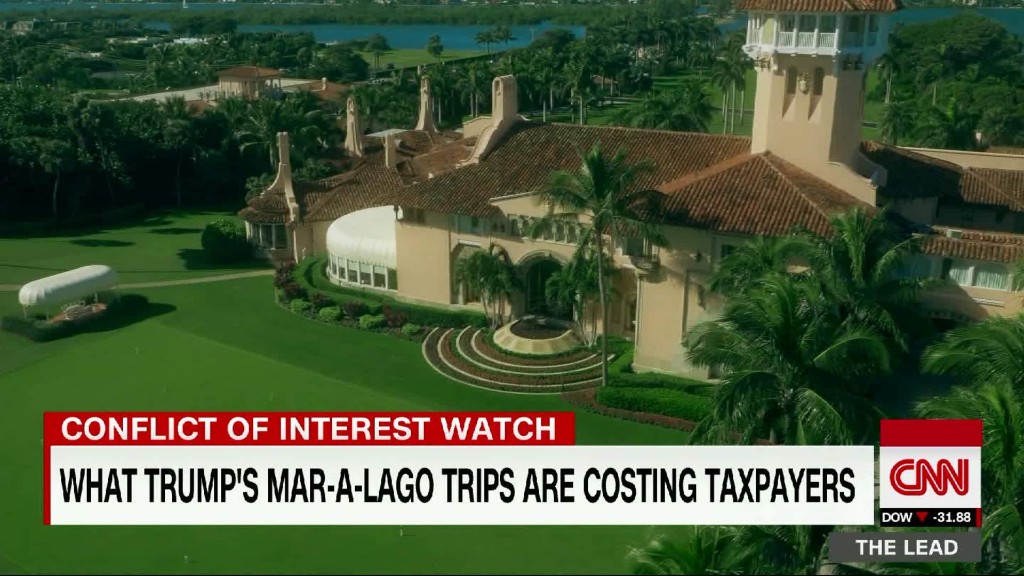
Ethics experts have sued the president. Now a judge has to decide whether their case can go forward.
At issue: Payments from foreign entities to his hotels, clubs and restaurants, which some watchdogs say violate an anti-corruption measure in the Constitution.
The constitutional provision in question -- the Emoluments Clause -- bars the president from accepting gifts from foreign governments without permission from Congress.
The group Citizens for Responsibility and Ethics in Washington claims that because Trump refused to sell his business holdings before the inauguration, he's in violation of the statute.
Related: Secret Service paid Mar-a-Lago at least $63,000, documents show
In a three hour hearing Wednesday, the main plaintiff, CREW, presented its arguments before a federal judge. A nonprofit restaurant group, a woman who books events at D.C. hotels, and a New York hotel and restaurant owner have also joined CREW as plaintiffs since the suit was first filed in January.
Attorneys for the Department of Justice argued on President Trump's behalf that the case should be dismissed.
Judge George Daniels did question whether the plaintiffs have grounds to sue. For the case to move forward, the judge has to determine that one of the plaintiffs have been harmed by the president's business activity.
For its part, CREW claims it's been hurt by the fact that it's had to divert resources toward holding the president accountable for potential conflicts of interest.
But Daniels seemed skeptical.
"You don't have standing to sue just because you don't like what's going on," Daniels told Deepak Gupta, who is representing the plaintiffs.
Daniels questioned whether this is a case the courts should consider at all. Instead, he suggested, maybe Congress should decide whether the president is violating anti-corruption rules.
The judge was also tough on the government, pressing its lawyers on their interpretation of the Emoluments Clause.
The language of the clause prevents officeholders from accepting any "present, emolument, office or title" from foreign officials or entities. The Justice Department argued that an emolument is a bribe. Daniels pushed back, saying he believes the word emolument means "compensation," and doesn't necessarily have to deal with a quid pro quo agreement.
Judge Daniels said he'll rule in the next 30 to 60 days.
